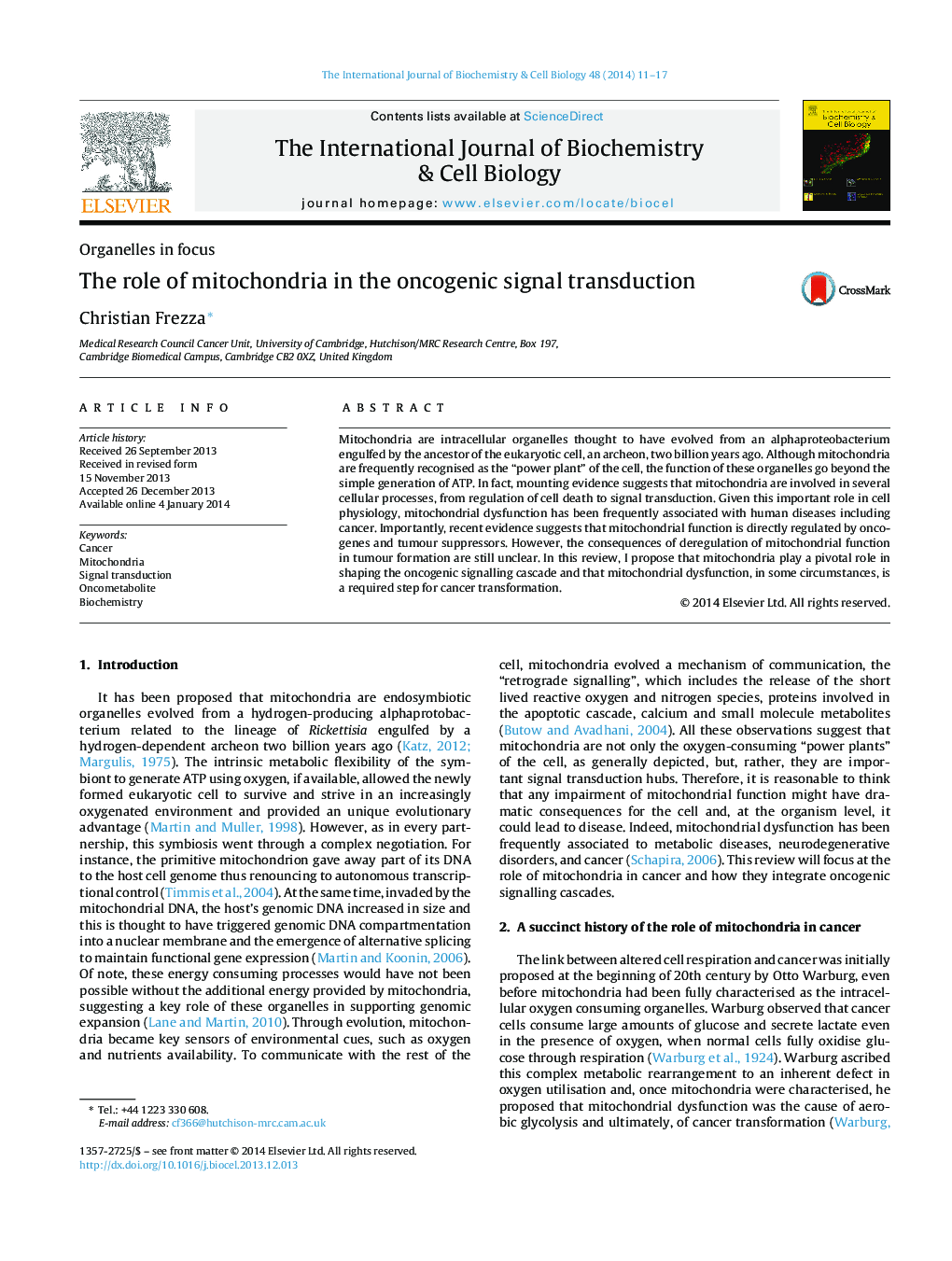| Article ID | Journal | Published Year | Pages | File Type |
|---|---|---|---|---|
| 8323672 | The International Journal of Biochemistry & Cell Biology | 2014 | 7 Pages |
Abstract
Mitochondria are intracellular organelles thought to have evolved from an alphaproteobacterium engulfed by the ancestor of the eukaryotic cell, an archeon, two billion years ago. Although mitochondria are frequently recognised as the “power plant” of the cell, the function of these organelles go beyond the simple generation of ATP. In fact, mounting evidence suggests that mitochondria are involved in several cellular processes, from regulation of cell death to signal transduction. Given this important role in cell physiology, mitochondrial dysfunction has been frequently associated with human diseases including cancer. Importantly, recent evidence suggests that mitochondrial function is directly regulated by oncogenes and tumour suppressors. However, the consequences of deregulation of mitochondrial function in tumour formation are still unclear. In this review, I propose that mitochondria play a pivotal role in shaping the oncogenic signalling cascade and that mitochondrial dysfunction, in some circumstances, is a required step for cancer transformation.
Related Topics
Life Sciences
Biochemistry, Genetics and Molecular Biology
Biochemistry
Authors
Christian Frezza,
